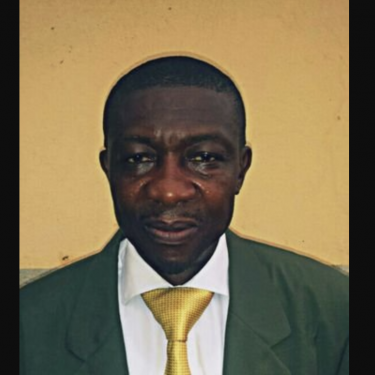Cameroon: Journalist accused of secessionism detained for six months

The Cameroonian authorities have yet to provide a credible explanation for the death in detention of journalist Samuel Wazizi in August last year and Reporters Without Borders now condemns the detention of another English-speaking journalist, also accused of supporting pro-secessionists in English-speaking regions of the country.
Is Cameroon turning into Central Africa’s most dangerous country for journalists? President Paul Biya has promised an investigation into the disturbing circumstances surrounding the death in military custody of journalist Samuel Wazizi. The death was acknowledged by the authorities 10 months after it occurred. Now the treatment of a second English-speaking journalist, freelance Kingsley Fumunyuy Njoka, is giving cause for concern. He was arrested at his home in Douala, the country’s economic capital, by four armed men on 15 May. His wife told RSF that three laptop computers were seized at the same time.
He was held incommunicado for three weeks before lawyers were allowed to see him. He was officially accused of secessionism and collusion with an armed group, and placed in provisional detention for six months on 12 June. According to one of his lawyers contacted by RSF, he is in a “feverish state” and his arrest is linked to his criticism of the way the Cameroonian authorities have handled the crisis in the English-speaking regions in the west of the country, plagued by fighting between troops and armed separatists which has caused 3,000 deaths in three years. He is also alleged to belong to social media discussions groups on the Anglophone crisis.
A close colleague of the journalist contacted by RSF described the allegations as “ridiculous”. According to reports received by the organization, Njoka is known for his professionalism and his criticism of the authorities’ handling of the crisis, while harsh at times, is always factually based. According to those close to him, he was probably being monitored because he regularly discussed the conflict with other journalists.
“The allegations against this journalist have yet to be substantiated and his detention incommunicado for several weeks would doubtless have been longer were it not for the serious revelations about the death of his English-speaking colleague Samuel Wazizi, who was also arrested for his coverage of the crisis in western Cameroon,” said Arnaud Froger, the head of RSF’s Africa desk. “It is a serious cause for concern that Cameroonian journalists such as those who report on the Anglophone conflict are held incommunicado, routinely linked with terrorists and tried by special courts. No country in the region has gone this far in recent years in cracking down on freedom of news and information.”
The arrest of Kingsley Njoka is a sad reminder of the fate of his English-speaking colleague Samuel Wazizi. In its investigation, RSF was able to confirm that Wazizi, also accused of colluding with secessionists, died in detention, that his family was not informed of his death contrary to what the government stated, and that the wounds on his body showed further investigation was warranted to establish the exact circumstances of his death. According to the official version, he died as a result of illness just two weeks after his arrest, despite being in perfect health.
The arbitrary detention of journalists, sometimes for long periods, are common in Cameroon. Ahmed Abba, Radio France Internationale's Hausa-language correspondent, was accused of terrorism in a case that was a total fabrication. He spent 29 months in detention before he was released in 2017 and forced to leave the country.
Amadou Vamoulké, the former head of Cameroon’s state radio and TV broadcaster CRTV, is still held in provisional detention after nearly four years. Accused of misusing state funds, he is on trial before a special court that has held more than 30 hearings yet has failed to draw up charges against him. RSF referred his case to the United Nations Working Group on Arbitrary Detention, which ruled that his detention had “no legal basis” and called for his release. It said his right to a fair trial had been seriously violated.
Cameroon has fallen three places to 134th in the 2020 World Press Freedom Index compiled by RSF.



